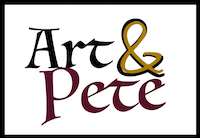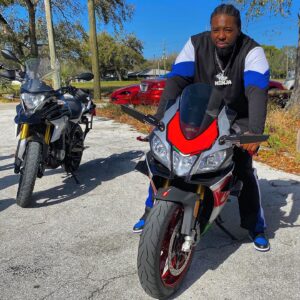
Emma Fradd: “I think it’s so important for our musicians to have a personal relationship with God.”
CATHOLIC musician Emma Fradd likes the word revival.
“I’m a direct communicator, because I think (revival) signifies that something is dead and lifeless,” Emma said.
“And I think a lot of parish music in our country is dead.”
Recognising there was a problem was the first step to solving it, and Emma, who is touring Brisbane parishes as part of her Music Revival Series, wants to solve the problem.
Old did not equal bad in her view.
She said many older traditional hymns were timeless, but if parish music groups were doing the same thing the same way for five or more years then that was a problem.
A friend of hers, who was once Catholic but turned protestant, told her a story about how she visited a Catholic church recently.
Emma asked what her experience had been.
“She said to me, ‘Emma, I knew Jesus was there, but it was as if everyone was acting like he wasn’t’,” she said.
“Personally, I’m not saying every parish is like this – I’m not saying you can judge someone’s inward disposition based on their outward disposition – but I think if visitors are coming to our parishes and it looks as if the people participating … don’t even care about what they’re doing, that sends a message.
“And the message that sent was – it’s not worth being here; I wish I was somewhere else.”
Emma said the Mass was not about listening to music; it was about listening to the Word of God and receiving the Body, Blood, Soul and Divinity of Christ.
But everything, music especially, should and could point to God to make a richer connection at the Mass.
 Learning music: Emma Fradd at a workshop she led with Rising Youth Ministry in Brisbane.
Learning music: Emma Fradd at a workshop she led with Rising Youth Ministry in Brisbane.
Her big message was – “you are a son or daughter of God”, which took precedence over job titles as music director or music minister.
“I think a lot of times, people can cling to their roles as music ministers and forget that they’re there to serve,” she said.
“I’ve heard stories of priests just approaching the band, approaching whoever’s leading music, gently asking them to maybe turn down, and they’ve just picked up their things and completely left the parish because they’ve been ‘offended’.
“I think this just illustrates, man, where was your heart?
“Are you there to do your own thing or are you there to serve?
“If you’re there to serve, you’re able to take feedback, you’re able to work with the priest, who’s the one who should have the vision for the parish in the first place.
“So what baffles my mind is the politics in music ministry.
“It’s dumb. It’s so stupid.
“People just get their claws into their job title and it robs a parish.
“It actually robs a parish of having good, healthy music.
“It robs opportunities for other people to step up because they’re scared because they’re told that they can’t because this is the way it’s always been.”
Robbed and dead was not a good combination.
Leadership, she said, played a part in fixing the politics of music ministry.
Often the responsibility was put on the priest, she said, but he was already “so busy” and probably not a musician.
This exact issue was why she started her workshop.
She said the solution would look different for different parishes.
It could range from budgeting to pay a music director who knew what they were doing, or it could be hosting formation seminars or simply more music training.
But it wasn’t the only problem.
“I think these days, particularly youth ministry, prioritise inclusivity over really pushing and challenging our youth to have a standard, and work hard and be at a level before they can play at Mass,” she said.
“Not just jumping in because you can sort of play an instrument, you know.
“I think taking it seriously and helping them be their best (was important).”
This fed into a confidence issue with young people.
“I’ll ask them (young people) to play a song, and the first thing they’ll say is… ‘Okay, but it’s probably not very good’,” she said.
“And I always say to them, ‘Excuse me, if you’re going to be in my workshop, I’m not going to let you talk about anyone like that especially yourself.’
“Just encouraging them to reframe the language they use, even to describe their own skill.”
She said getting up in front of Mass to play, where the average age of a parishioner was 59 and everyone there was older than you, could be daunting.
“Some of them don’t want to do it because they’re really scared,” she said.
It was essential to develop a “growth mindset”.
“Particularly youth are so amazing, their brains are growing, they bring such life to our parishes, I always encourage them to reframe what you’re saying,” she said.
“Okay you’re not good enough, maybe what you should be saying is you’re not where you want to be but you’re on your way.
“You’re here to grow.”
This did not just refer to growth in music skill but faith too.
“I think it’s so important for our musicians to have a personal relationship with God,” she said.
“So they can just be, yeah, plugged in and kind of know where they’re leading people on a Sunday.”
There were good examples out there, too, she said.
She said she was not part of the Emmanuel Community, but last year, she led music for one of their Sunday Masses.
“As soon as their entrance song began, I began to tear up because I was so overwhelmed by the (joy) and the participation of the congregation,” she said.
“Their hearts were fully in it, it was breathing life into me as a worship leader.”
When we sing, she said, God was active in worship.
It had been part of her conversion story and it could be a strong evangelistic tool, she said.
“Everyone loves music,” she said.
If you or your parish are interested in Emma Fradd’s Music Revival Series, you can contact her at [email protected] for more information.






